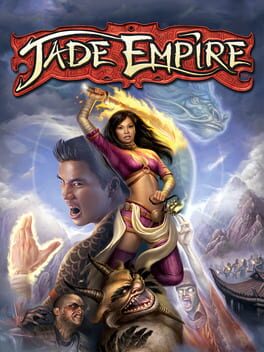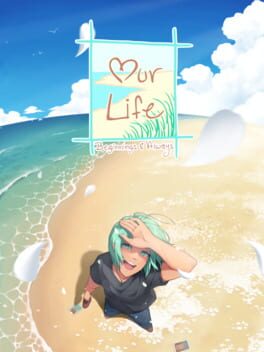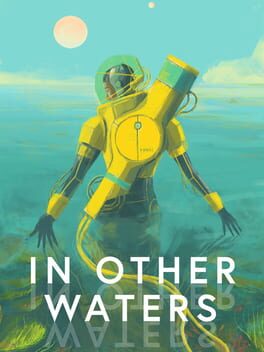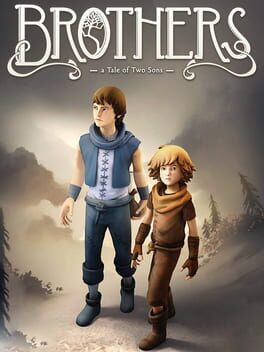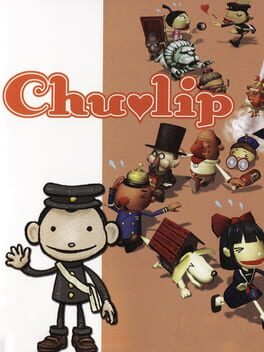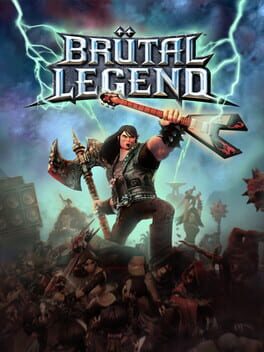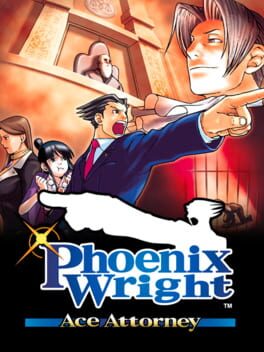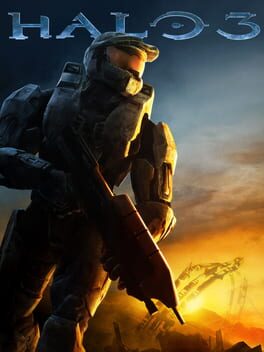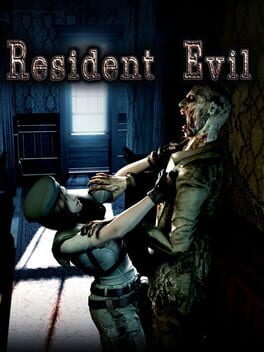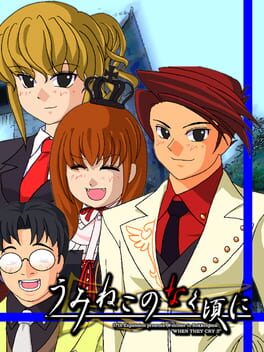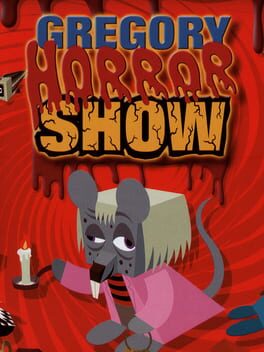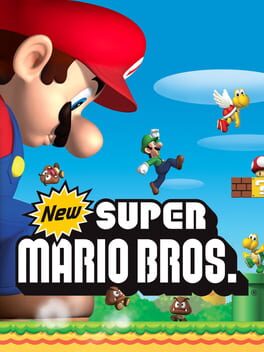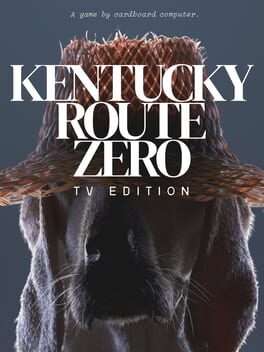ludzu
2005
i tried this after a friend who i didnt take for liking these types of games sung its praises, and man just from the first time period its writing is honestly....really really good. understands the internal state of elementary kids really well, of a time when any dumb argument could feel like a massive rift, when nothing gestures could be imbued with love that you couldnt really understand yourself at the time, the sensations of having a childhood crush and navigating the personalities of other children. it allows you to re-enter that space through how you interpret your dialogue choices and its so effective. theres a part where you go to a bbq and it actually overwhelmed me, reminding of an instance of where i wanted to feel safe with one of my parents out of some sense of sensory overload that i dont recall the cause of. could be something like that for you in this.
its fluff yeah but incredibly nostalgic and emotionally acute fluff. im not done with this, im waiting until its all out before i keep going, but its been impressive so far and im hoping it keeps up for the rest of it.
its fluff yeah but incredibly nostalgic and emotionally acute fluff. im not done with this, im waiting until its all out before i keep going, but its been impressive so far and im hoping it keeps up for the rest of it.
2020
i did not really feel like i was embodying the role of the AI construct the kind of bland narrative and the Y/N, "hey are you paying attention?" interactions with vas (also whats with...all the ellipses...) try to make the player out to be. but i DID feel more like an AI from the minimal ui and the specific control style that turns everything you do into a strict procedure, with split second decisions taking excruciating--in a good way--seconds longer to execute. it actually made me hear a computerized voice in my head that said "harvesting sample", or "sending signal", or "deploying nest weavers", with every action i took.
this methodical mindset the game makes you have, along with marine xenobiology studies you do, is really really nice. unfortunately the fiction part of the interactive fiction is not interesting enough for me to see it through, which is a shame.
this methodical mindset the game makes you have, along with marine xenobiology studies you do, is really really nice. unfortunately the fiction part of the interactive fiction is not interesting enough for me to see it through, which is a shame.
2002
(i put some hot tips on playing chulip at the end of this review and i beg you to look at them, if nothing else here, if you are planning to play this!!!!)
moon, chulip's predecessor that laid the foundation for its general gameplay and writing style, is a game about "love" in a broad sense. you must observe people, hear their thoughts on things/others, give items, and practice good timing and patience while each tick of the timer brings you closer to "death". you give "love" and in turn receive it as a kind of experience, which as it accumulates allows the player-character to persist in the world for lengthier periods of time. the idea behind this "levelling up" with love, to extend this life timer, is that love is what drives us to exist at the most fundamental level.
moon ties its passivity of the player into a critique on rpgs' getting experience through violence and its obfuscation of that violence, and forms much of its identity around this. despite some uneven execution, i do think its statement of intent that comes out of this critique, taken more broadly a thesis on what we take from games in general, makes moon an incredibly passionate game in own right. but its kind of passivity presents its own problems to me; you become an intangible ghost in moon's world, impervious to all its elements EXCEPT for time. it presents its own challenges for the player through with the concept of passing time, but because its only really the timer and being patient enough you'll have to worry about (and you practically forget about the timer once your love level is high enough), i do feel like there's some lack of complexity to moon's definition of "love" past this. this lack unfortunately lends itself to simplistic woobified arguments for moon that arent totally its fault, that its a cutesy escapist sim patterned after animal crossing, revolutionary just because its non-violent, smoothing out the complexities and contradictions that do exist within the game.
yoshiro kimura, one of moon's three main designers and the one responsible for the bulk of its script, would go on to found punchline and create its first game, chulip, after suffering a health crisis and travelling the world (not sure in which order, but i think both inform this game's figurative/literal troubles of the heart and its internationalism, respectively). chulip is one of three spiritual sequels to moon along with giftpia (by moon designer kenichi nishi's skip inc) and endonesia (by moon designer taro kudo's vanpool), all three of which lift moon's "love" gathering mechanic but ditch the rpg critique to utilize it for stories about growing up and adolescence...at least from what i can tell, because only chulip has an english translation. i believe giftpia is about considering what path one takes to realize they are an adult, and i believe endonesia frames adulthood as an understanding of one's own emotions and rejecting escapism, but i'd love to be able to understand their text fully someday and see for myself. the point is, all of them take moon's bedrock and mechanically and narratively add their own spin and layers of complexity beyond that original game's meta, genre-defying statement.
chulip frames adolescence as "learning how one can attain happiness"...which can be interchangibly interpreted as attaining love, since the game revolves around getting kisses and all, but happiness is the operative word that comes up time and time again. its a harsh world, one of artists unhappy that their dreaming days are long gone or contending with leaving them behind, working adults unhappily fighting over scraps of money no one can get, lovers unhappily separated by death that came too soon, workers unhappy to be stuck in dead end jobs in perpetuity, people with secret passions and vices unhappy that they cant be known, students of life so unhappy that they shut themselves off from the world, so on. the main goal is attaining a lasting happiness in winning over a girl you saw in your dreams, and to do that you need to strengthen, i.e. "level up", your heart by getting practice kisses from everyone else in the game.
to make the player understand the world as one that tests happiness, to take them out of complacency that stems from being nothing more than an observer, moon's timer is replaced with hp, heart points. same basic idea as health but damage is not just physical (though it often is), but emotional too: when you get yelled at, overhear a snicker at something you did wrong, pick up a gross RNG poopie out the trash, you take damage. a game over in chulip is not becoming starved of energy like in moon, but becoming heartbroken. chulip teaches that finding happiness is a difficult journey that requires a vulnerability to pain that moon largely shields you from. you must learn how to deal with being hurt, sometimes to the point of wanting to give up, much like its underground residents seem to have. but even they have moments where they want to come out and be happy. thus the game is not just about comfortably observing examples of love in the world, but exposing yourself to an often unkind world to find happiness, to both enjoy the smaller moments and to become closer to a revelation of oneself.
so the elephant in the room: chulip's reputation. that it wastes the players time constantly, that its puzzles are cryptic to the highest degree and its never clear what to do, and that its viciously eager to hurt the player in many different ways until they die and lose progress. even people who found something to love in moon--itself a time wasting, highly cryptic game--would say chulip has worse design. moon can be accepted for its supposed wholesomeness, but then chulip by comparison is downright abusive for daring to be a cute game about gaining love from others that then has you taking figurative and literal blows from them constantly, and discouraging exploration when the most harmless seeming, insignificant interaction might hide an unwelcome, barbed wire surprise. i have heard all this, considered it carefully, and decided i am far too in love with chulip's whole being to care or even think of most of it as actually bad. i cant think of this game as truly mean-spirited when it sincerely makes me laugh, humbles me, and has this aura that kept me from ever being mad at it for too long. its entire essence envelops me, making everything it throws at me feel utterly right with what it kind of experience it is.
im playing the trangressive design card here somewhat, one usually used for more self-serious, "cooler" experiences in which theres no real question about their intentionality--pathologic, nier/drakengard, certain kill the past games spring to mind. its wasting time is inherited from moon, both sharing an unconventional design element in having the player feel time go by passively, so that even boredom adds color to a world as it turns with or without you (though chulip having no timer makes waiting around by itself less of a problem, the one "non-stressful" edge over moon). i find its even more cryptic puzzles are actually more fitting than moon's, or any other adventure game i can think of, because its obtuseness is so over the top and specific to itself when taken altogether that it feels hilariously in tune with the strange and opaque nature of the characters and the world. same can be said for its threats to your health from every corner; im drawn into the world when it strikes back, not simply out of some dour sense of brutal reality, but because its jokes hit that much harder when you mechanically feel the punchline (heyyo). im not saying all of this is intentional, though i think more of it is than its been given credit--dont even get me started on the factory as a simulation of grueling tedious work--but it doesn't matter to me when so much of what might not be intended just works so magically for me. all of it adds up to become THE single best work of comedy ive ever found in games, slapstick with uncanny timing, bewildering beyond belief in its impish way.
not to mention that this is a love-de-lic like we are talking about; an airtight clockwork construction of character-based narrative design with an incredible level of detail to discover on your own, genuinely deserving of greater appreciation. will always love the planning out of what to do that happens in my head with every daily commute to different areas, working my way through the showa-era diorama of long life town with its lovely rustic atmosphere. its mundane ritualisticness got nailed into me as i played and became insanely endearing; getting up, passing michelle beside the empty lot dream girl is living in, going under the train tracks where that fortune teller is, walking by the fountain up the stairs to the station, buying a ticket from the two-faced man and then waiting for the train...soothes my autistic brain like nothing else. the goddamn SOUNDTRACK and SOUND DESIGN is taniguchi arguably at his very best, full of variations on that one theme of the entire world of the game thats seemingly composed to be perfect biding-your-time music. AND its a game so tantalizingly bursting with secrets that i have played it and replayed it often these past 5 years, and in all these years, i have only been able to go a few months at most before i find or hear about something i never found before. not kidding, i literally found something new the week before i wrote this. ok full on rambling at this point ill wrap up
im too stubborn to make concessions, or to fall back on ironic appreciation. i love chulip immeasurably, it epitomizes so many of the feelings within games that i want to explore most, as a singular and highly considered vision within the medium that ALSO reveals this medium's tendency towards fraught, confused architecture. an intricate piece of simply spoken poetry with a wonderful rhythm of life to it, yet brutally and hilariously esoteric as can be. looking back on an embarrassing temporary defeat and laughing, listen to the sounds of your hometown at night, speaking honestly and being true to yourself to others, all of these have happiness in them. the rules of love are the rules of the universe, the rules of the universe are the rules of long life town.
SOME TIPS:
- im not going to say you wont need a walkthrough and i dont blame people for using one BUT dont assume this game wont give any hints on how to do anything. i would say to try a walkthrough only when you feel like youve exhausted your options, especially if it isnt related to an underground resident or the "main quest". when you need a guide i recommend using the fandom wiki for help, as gamefaqs is ocassionally misleading.
- tying into the above, i cannot stress enough that the third rule of love suzuki mentions is extremely, EXTREMELY important. you follow that rule by showing items and name cards to people in long life town, you can buy blank business cards from the shop next to the train station. if you engaged with moon's name cards/item showing system, you probably understand, but id argue its even more crucial in this game. take in and learn as much as you can.
- the english localization makes the game playable but it is incomplete and downright bugged in places (i still love how its deadpan delivery makes everything feel extra bizarre, even if things were translated too bluntly). the worst offender is that it left out a major hint for a main quest, which ill tell you about here: you'll find a computer that displays a message onscreen, that message is "dempou soccer".
- save often. in new areas, prioritize kissing residents who clean toilets. this game can kill you easily especially early on, tread carefully until you have more hp and health items to recup from blows.
moon, chulip's predecessor that laid the foundation for its general gameplay and writing style, is a game about "love" in a broad sense. you must observe people, hear their thoughts on things/others, give items, and practice good timing and patience while each tick of the timer brings you closer to "death". you give "love" and in turn receive it as a kind of experience, which as it accumulates allows the player-character to persist in the world for lengthier periods of time. the idea behind this "levelling up" with love, to extend this life timer, is that love is what drives us to exist at the most fundamental level.
moon ties its passivity of the player into a critique on rpgs' getting experience through violence and its obfuscation of that violence, and forms much of its identity around this. despite some uneven execution, i do think its statement of intent that comes out of this critique, taken more broadly a thesis on what we take from games in general, makes moon an incredibly passionate game in own right. but its kind of passivity presents its own problems to me; you become an intangible ghost in moon's world, impervious to all its elements EXCEPT for time. it presents its own challenges for the player through with the concept of passing time, but because its only really the timer and being patient enough you'll have to worry about (and you practically forget about the timer once your love level is high enough), i do feel like there's some lack of complexity to moon's definition of "love" past this. this lack unfortunately lends itself to simplistic woobified arguments for moon that arent totally its fault, that its a cutesy escapist sim patterned after animal crossing, revolutionary just because its non-violent, smoothing out the complexities and contradictions that do exist within the game.
yoshiro kimura, one of moon's three main designers and the one responsible for the bulk of its script, would go on to found punchline and create its first game, chulip, after suffering a health crisis and travelling the world (not sure in which order, but i think both inform this game's figurative/literal troubles of the heart and its internationalism, respectively). chulip is one of three spiritual sequels to moon along with giftpia (by moon designer kenichi nishi's skip inc) and endonesia (by moon designer taro kudo's vanpool), all three of which lift moon's "love" gathering mechanic but ditch the rpg critique to utilize it for stories about growing up and adolescence...at least from what i can tell, because only chulip has an english translation. i believe giftpia is about considering what path one takes to realize they are an adult, and i believe endonesia frames adulthood as an understanding of one's own emotions and rejecting escapism, but i'd love to be able to understand their text fully someday and see for myself. the point is, all of them take moon's bedrock and mechanically and narratively add their own spin and layers of complexity beyond that original game's meta, genre-defying statement.
chulip frames adolescence as "learning how one can attain happiness"...which can be interchangibly interpreted as attaining love, since the game revolves around getting kisses and all, but happiness is the operative word that comes up time and time again. its a harsh world, one of artists unhappy that their dreaming days are long gone or contending with leaving them behind, working adults unhappily fighting over scraps of money no one can get, lovers unhappily separated by death that came too soon, workers unhappy to be stuck in dead end jobs in perpetuity, people with secret passions and vices unhappy that they cant be known, students of life so unhappy that they shut themselves off from the world, so on. the main goal is attaining a lasting happiness in winning over a girl you saw in your dreams, and to do that you need to strengthen, i.e. "level up", your heart by getting practice kisses from everyone else in the game.
to make the player understand the world as one that tests happiness, to take them out of complacency that stems from being nothing more than an observer, moon's timer is replaced with hp, heart points. same basic idea as health but damage is not just physical (though it often is), but emotional too: when you get yelled at, overhear a snicker at something you did wrong, pick up a gross RNG poopie out the trash, you take damage. a game over in chulip is not becoming starved of energy like in moon, but becoming heartbroken. chulip teaches that finding happiness is a difficult journey that requires a vulnerability to pain that moon largely shields you from. you must learn how to deal with being hurt, sometimes to the point of wanting to give up, much like its underground residents seem to have. but even they have moments where they want to come out and be happy. thus the game is not just about comfortably observing examples of love in the world, but exposing yourself to an often unkind world to find happiness, to both enjoy the smaller moments and to become closer to a revelation of oneself.
so the elephant in the room: chulip's reputation. that it wastes the players time constantly, that its puzzles are cryptic to the highest degree and its never clear what to do, and that its viciously eager to hurt the player in many different ways until they die and lose progress. even people who found something to love in moon--itself a time wasting, highly cryptic game--would say chulip has worse design. moon can be accepted for its supposed wholesomeness, but then chulip by comparison is downright abusive for daring to be a cute game about gaining love from others that then has you taking figurative and literal blows from them constantly, and discouraging exploration when the most harmless seeming, insignificant interaction might hide an unwelcome, barbed wire surprise. i have heard all this, considered it carefully, and decided i am far too in love with chulip's whole being to care or even think of most of it as actually bad. i cant think of this game as truly mean-spirited when it sincerely makes me laugh, humbles me, and has this aura that kept me from ever being mad at it for too long. its entire essence envelops me, making everything it throws at me feel utterly right with what it kind of experience it is.
im playing the trangressive design card here somewhat, one usually used for more self-serious, "cooler" experiences in which theres no real question about their intentionality--pathologic, nier/drakengard, certain kill the past games spring to mind. its wasting time is inherited from moon, both sharing an unconventional design element in having the player feel time go by passively, so that even boredom adds color to a world as it turns with or without you (though chulip having no timer makes waiting around by itself less of a problem, the one "non-stressful" edge over moon). i find its even more cryptic puzzles are actually more fitting than moon's, or any other adventure game i can think of, because its obtuseness is so over the top and specific to itself when taken altogether that it feels hilariously in tune with the strange and opaque nature of the characters and the world. same can be said for its threats to your health from every corner; im drawn into the world when it strikes back, not simply out of some dour sense of brutal reality, but because its jokes hit that much harder when you mechanically feel the punchline (heyyo). im not saying all of this is intentional, though i think more of it is than its been given credit--dont even get me started on the factory as a simulation of grueling tedious work--but it doesn't matter to me when so much of what might not be intended just works so magically for me. all of it adds up to become THE single best work of comedy ive ever found in games, slapstick with uncanny timing, bewildering beyond belief in its impish way.
not to mention that this is a love-de-lic like we are talking about; an airtight clockwork construction of character-based narrative design with an incredible level of detail to discover on your own, genuinely deserving of greater appreciation. will always love the planning out of what to do that happens in my head with every daily commute to different areas, working my way through the showa-era diorama of long life town with its lovely rustic atmosphere. its mundane ritualisticness got nailed into me as i played and became insanely endearing; getting up, passing michelle beside the empty lot dream girl is living in, going under the train tracks where that fortune teller is, walking by the fountain up the stairs to the station, buying a ticket from the two-faced man and then waiting for the train...soothes my autistic brain like nothing else. the goddamn SOUNDTRACK and SOUND DESIGN is taniguchi arguably at his very best, full of variations on that one theme of the entire world of the game thats seemingly composed to be perfect biding-your-time music. AND its a game so tantalizingly bursting with secrets that i have played it and replayed it often these past 5 years, and in all these years, i have only been able to go a few months at most before i find or hear about something i never found before. not kidding, i literally found something new the week before i wrote this. ok full on rambling at this point ill wrap up
im too stubborn to make concessions, or to fall back on ironic appreciation. i love chulip immeasurably, it epitomizes so many of the feelings within games that i want to explore most, as a singular and highly considered vision within the medium that ALSO reveals this medium's tendency towards fraught, confused architecture. an intricate piece of simply spoken poetry with a wonderful rhythm of life to it, yet brutally and hilariously esoteric as can be. looking back on an embarrassing temporary defeat and laughing, listen to the sounds of your hometown at night, speaking honestly and being true to yourself to others, all of these have happiness in them. the rules of love are the rules of the universe, the rules of the universe are the rules of long life town.
SOME TIPS:
- im not going to say you wont need a walkthrough and i dont blame people for using one BUT dont assume this game wont give any hints on how to do anything. i would say to try a walkthrough only when you feel like youve exhausted your options, especially if it isnt related to an underground resident or the "main quest". when you need a guide i recommend using the fandom wiki for help, as gamefaqs is ocassionally misleading.
- tying into the above, i cannot stress enough that the third rule of love suzuki mentions is extremely, EXTREMELY important. you follow that rule by showing items and name cards to people in long life town, you can buy blank business cards from the shop next to the train station. if you engaged with moon's name cards/item showing system, you probably understand, but id argue its even more crucial in this game. take in and learn as much as you can.
- the english localization makes the game playable but it is incomplete and downright bugged in places (i still love how its deadpan delivery makes everything feel extra bizarre, even if things were translated too bluntly). the worst offender is that it left out a major hint for a main quest, which ill tell you about here: you'll find a computer that displays a message onscreen, that message is "dempou soccer".
- save often. in new areas, prioritize kissing residents who clean toilets. this game can kill you easily especially early on, tread carefully until you have more hp and health items to recup from blows.
2016
thinking about this alot after finishing it so heres a journal with the "perfect reader" in mind (sorry). everybody loves transmitter and tbf kusabi and sumio are pretty good, to the detriment most of the others in the hcu imo, but placebo really is where the heart of this game is. morishima's routine and the way his i-dont-care cynicism gets challenged crystallizes the heady themes you deal with in transmitter, maybe a little too scattered-ly handled in that scenario by itself until later chapters get somewhat better footing, into a more personal and comparatively more parseable focus. the back and forth of understanding events emotions and associations between scenarios helps them both and made this more emotionally involving than i expected. that last chat with erika makes me cry just thinking abt it.
only played killer7 before this but i think prefer this to it by a little, even if k7 is more certain in what its doing. am now real excited to get into kill the past and see what fsr and 25th ward brings, and might replay k7 and finally fix feelings on it once i get through those.
only played killer7 before this but i think prefer this to it by a little, even if k7 is more certain in what its doing. am now real excited to get into kill the past and see what fsr and 25th ward brings, and might replay k7 and finally fix feelings on it once i get through those.
2009
sometimes feel like i wasted alot of my time and energy on this game, despite its cooler aspects, that i cant really call it "good" anymore, and it probably marked the beginning of the end of my hero worship of tim schafer and double fine (even making psychonauts feel kinda hollow in retrospect). but then i remember hitting the throttle on the deuce in time with the guitars going crazy on zoom club so who can really say what a "good" game is. god bless whoever told schafer about budgie
its good but i didn't finish the christmas case--i just watched the takashi miike movie and got basically spoiled on what happens. the movie sincerely fucking rips though so watch that if you played this?
anyways sorry to be a little semantics bitch, i dont literally think everybody means it this way, but calling games like this and danganronpa "visual novels" often feels like they have this implicit denial of their use of interactive space because they "have lots of words instead of any gameplay", and the way expressions of interactivity get taken for granted like that bugs me. maybe this comes off as splitting hairs like getting upset over "walking sims" in 2021, but the cultural barrier in how narrative games are understood, that in japan this is absolutely an adventure game while in the west it by and large is taken as not counting somehow, makes this more frustrating to me. its less about using the correct label for me than it is more about understanding games for what they are doing rather than what they seemingly aren't doing. watch this bc he talks abt the historical context of this better than i can https://www.youtube.com/watch?v=7wOtv-J7tOI
anyways sorry to be a little semantics bitch, i dont literally think everybody means it this way, but calling games like this and danganronpa "visual novels" often feels like they have this implicit denial of their use of interactive space because they "have lots of words instead of any gameplay", and the way expressions of interactivity get taken for granted like that bugs me. maybe this comes off as splitting hairs like getting upset over "walking sims" in 2021, but the cultural barrier in how narrative games are understood, that in japan this is absolutely an adventure game while in the west it by and large is taken as not counting somehow, makes this more frustrating to me. its less about using the correct label for me than it is more about understanding games for what they are doing rather than what they seemingly aren't doing. watch this bc he talks abt the historical context of this better than i can https://www.youtube.com/watch?v=7wOtv-J7tOI
2007
the epitome of what halo was meant to be in the devs minds after halo 1, with its scope finally matching the product, but it only made me realize i didn't want that. like imagine being a teenager and getting to the part with TWO scarabs!!! and somehow feeling nothing. it might be good to come back to but i genuinely do not remember much about the campaign in this one, compared to the isolated feeling of 1 and that twist in 2 (not to say 2 is all that great but i do at least remember liking the campaign's best moments enough to come back to it). its like too much of a good thing to me.
probably was the game to make me slowly start to realize 7th gen shooters weren't gonna be my thing, and that games on this graphical quality actually kinda hurt my eyes.
probably was the game to make me slowly start to realize 7th gen shooters weren't gonna be my thing, and that games on this graphical quality actually kinda hurt my eyes.
an odd one out of suda's ouevre. largely avoids the fixation on violence grasshopper's games are known for, foregoing the hard boiled cybercrime noir of the silver case, the post-9/11 sentai horror bloodbath of killer7, and the sillier nerdfighter grindhouse bloodbath of no more heroes (which would set a pattern followed by most of the studio's subsequent games as bloodbaths, with suda only occasionally as the director. its humor is also pretty close to fsr's at times). tonally very different from these but thematically very familiar, flower sun and rain should be taken as both sequel AND side story at once to tsc, and its very hard to talk about without also bringing up that game, in a way i dont think is as true for the more standalone k7 or nmh. there really is an appeal i'm finally starting to understand with taking tsc, this, and likely 25th ward--which is next up for me--as a trilogy with its own arc.
the silver case itself, as the starting point, is obsessed with the internet and the city, finding a formal link between the two. it's in the clacking text boxes, the film windows, the backgrounds with rotating numbers and flashing shapes and out of context phrases, altogether an abstracted space of words and pictures that feels like website presentation. its also in the player movement thats restricted to hotspots with rigid pathing befitting of street grids, apartment buildings, your home that you make the same linear motions in everyday. both feel non-naturalistic and cramped, but that just emphasizes the experience we have with these spaces. surrounded by cold geometric cells online and off, everyone so close together yet so far away. it gets exhausting, being unable to find ourselves outside of these boxes, to get some picture of truth. the game recognizes the need to reach for the light within yourself, outside of this darkness, but what would that even look like?
fsr shows a world "outside" by taking the reverse approach. your movement is "freer", your sense of space perceivable with the player character's own two legs in relation to analog control. hotel guests, staff, and people of the island get in your way to ask for "help", more or less, with tasks that are nonsensical in their solution and often ridiculous in their premise too, but the experience of it creates a sense you are working for a net good out of mondo's own developing kindness. you gain more and more of the world to move in until you eventually feel your sense of self stretch across long roads and pathways--literally as the in-game guidebook itself says. you can check bathrooms, take unnecessary detours, hear the rolling waves and the chirping birds. maybe this is where you can find the light.
but this "naturalistic" feeling of freedom the game allows compared to tsc, however, belies the truth of lospass's paradise as being just as artificial as the 24 wards, in a different way. the puzzles you help others with are just solved with codes based off relevant trivia from a pamphlet, blatantly mechanical logic as it can get (reminds me a little of riven, though the juxtaposition of natural and unnatural here is more unmistakably intentional). the staff hide themselves behind friendly smiles, and some of those you help may be tricking you. the hotel, a temporary place to stay, is the only "living space" you can find. structures feel too new, too slick, to feel some engrained identity behind them. the island lost its own past, perhaps even had it stolen, with whatever it is that looks like "history" you find not necessarily being factual. it goes beyond feeling touristy, it's like people can't really live and be oneself here for all that long.
what i like about flower sun and rain not being a silver case sequel in name is that its another way the game frames itself as an escape from the confines of the wards--meaning then that 25th ward may be a return to the grime so to speak, to confront that space again. fsr is trying to forget the past that built it, only to find a new kind of artifice that reminds you of the one you knew before. this doesn't mean the game is saying its escapism is ultimately useless and selfish though, because when you're in the dark it might be a matter of needing to see something different, anything else, to gain a better understanding of yourself and your past that made you yourself. new memories tinged by a new sun, even as artificial light, might be whats needed to really move forward.
loved doing math homework and taking daily jogs on my tropical vacay. ps the walking around wasn't even as bad as it was made out to be, you guys are just weak and need to break your brain like i did with aimlessly backtracking for no real reward in other games that have even larger and emptier worlds
the silver case itself, as the starting point, is obsessed with the internet and the city, finding a formal link between the two. it's in the clacking text boxes, the film windows, the backgrounds with rotating numbers and flashing shapes and out of context phrases, altogether an abstracted space of words and pictures that feels like website presentation. its also in the player movement thats restricted to hotspots with rigid pathing befitting of street grids, apartment buildings, your home that you make the same linear motions in everyday. both feel non-naturalistic and cramped, but that just emphasizes the experience we have with these spaces. surrounded by cold geometric cells online and off, everyone so close together yet so far away. it gets exhausting, being unable to find ourselves outside of these boxes, to get some picture of truth. the game recognizes the need to reach for the light within yourself, outside of this darkness, but what would that even look like?
fsr shows a world "outside" by taking the reverse approach. your movement is "freer", your sense of space perceivable with the player character's own two legs in relation to analog control. hotel guests, staff, and people of the island get in your way to ask for "help", more or less, with tasks that are nonsensical in their solution and often ridiculous in their premise too, but the experience of it creates a sense you are working for a net good out of mondo's own developing kindness. you gain more and more of the world to move in until you eventually feel your sense of self stretch across long roads and pathways--literally as the in-game guidebook itself says. you can check bathrooms, take unnecessary detours, hear the rolling waves and the chirping birds. maybe this is where you can find the light.
but this "naturalistic" feeling of freedom the game allows compared to tsc, however, belies the truth of lospass's paradise as being just as artificial as the 24 wards, in a different way. the puzzles you help others with are just solved with codes based off relevant trivia from a pamphlet, blatantly mechanical logic as it can get (reminds me a little of riven, though the juxtaposition of natural and unnatural here is more unmistakably intentional). the staff hide themselves behind friendly smiles, and some of those you help may be tricking you. the hotel, a temporary place to stay, is the only "living space" you can find. structures feel too new, too slick, to feel some engrained identity behind them. the island lost its own past, perhaps even had it stolen, with whatever it is that looks like "history" you find not necessarily being factual. it goes beyond feeling touristy, it's like people can't really live and be oneself here for all that long.
what i like about flower sun and rain not being a silver case sequel in name is that its another way the game frames itself as an escape from the confines of the wards--meaning then that 25th ward may be a return to the grime so to speak, to confront that space again. fsr is trying to forget the past that built it, only to find a new kind of artifice that reminds you of the one you knew before. this doesn't mean the game is saying its escapism is ultimately useless and selfish though, because when you're in the dark it might be a matter of needing to see something different, anything else, to gain a better understanding of yourself and your past that made you yourself. new memories tinged by a new sun, even as artificial light, might be whats needed to really move forward.
loved doing math homework and taking daily jogs on my tropical vacay. ps the walking around wasn't even as bad as it was made out to be, you guys are just weak and need to break your brain like i did with aimlessly backtracking for no real reward in other games that have even larger and emptier worlds
2002
-very cool, epistemological take on murder mysteries. setups really got me hooked so far
- natsuhi is a freaking girlboss >_< and i expect the older ushiromiyas in general to be girlbosses as well but she is my favorite as of now
- i understand wanting the patch for the voice acting but if you are seriously gonna try and tell me ryukishi's art is worse than the plastic ass ps3 art then get ur eyes checked!!! its fucking good!!!
- natsuhi is a freaking girlboss >_< and i expect the older ushiromiyas in general to be girlbosses as well but she is my favorite as of now
- i understand wanting the patch for the voice acting but if you are seriously gonna try and tell me ryukishi's art is worse than the plastic ass ps3 art then get ur eyes checked!!! its fucking good!!!
2003
this, majora's mask, animal crossing, and sakura momoko no ukiuki carnival are the small handful of games i know of in which my hunch is that they took notes from moon's game design in pretty clear ways, without involvement from moon's team. this is only a theory of mine i can't prove so take that with a grain of salt, but it's funny to me that ghs, a tie-in game to a CG anime, is the one out of these that feels the hardest to ignore for possible love-de-lic influence. it's got a stamina bar/timer to contend with before you need to go to sleep, requires observation of characters' schedules and gathering information on them, and even tries to be meta (if you know anything about the arc of the main narrator in each season of the show, its like that. better handled as a game honestly, though still kinda out-of-place imo).
ghs actually takes that character observation in ldl-likes to its logical conclusion, contextualizing your voyeurism of others with stealth elements. the whole idea is you are snooping on creepy halloween monsters that want to trap you here forever and mock you constantly as they do it, when they arent more indirectly causing you grief, and you want to get some advantage over them. its interesting this kind of format of walk-and-talk rpg-ish adventure game lends itself to a haunted hotel scenario, as a way to inject character-based humor n camp into horror while disempowering you, something that wouldnt be the same with a more straight-laced clock tower approach (there is quite a bit of that in this of course).
and the game itself is pretty decent for what it is too!! fuck getting the souls from tv fish and my son though. you read that right, "my son" is in this and i hate him
ghs actually takes that character observation in ldl-likes to its logical conclusion, contextualizing your voyeurism of others with stealth elements. the whole idea is you are snooping on creepy halloween monsters that want to trap you here forever and mock you constantly as they do it, when they arent more indirectly causing you grief, and you want to get some advantage over them. its interesting this kind of format of walk-and-talk rpg-ish adventure game lends itself to a haunted hotel scenario, as a way to inject character-based humor n camp into horror while disempowering you, something that wouldnt be the same with a more straight-laced clock tower approach (there is quite a bit of that in this of course).
and the game itself is pretty decent for what it is too!! fuck getting the souls from tv fish and my son though. you read that right, "my son" is in this and i hate him
so badly want to dispel certain preconceptions of this game--ones set by some who dismiss it ("its a vn with no real agency/choices dont do anything") AND ones set by some who gas it up ("the next great american novel" canonization discourse). so badly want to just talk about the many little optional-to-contend-with details ive come to love in this game that's so dizzingly full of them, interpretative or intertextual or something snuck into the code or otherwise, that i immediately forgive it for not caring much abt how indulgent it must look. so badly want to express the episodic experience as bad and good with the excruciating waits, tantalizing peeks of a world that crosses the boundary of the game space into other mediums and irl, and having a closer understanding of a work that changes from part to part, on an almost exponential scale, with the shifting priorities and moods of the creators--and the ideology of obsolescence that extends to both unity as an engine and the game's themes and perceived relevance--over time. and so badly want to talk about my own cowriting of this story that became a mirror into myself; fear of genetic alcoholism, anxieties on separation between "work" and "hobby", the shame of guillibly falling into something i couldn't really foresee but well you shouldve, the worry of constantly forgetting, the difficulty of accepting records and archives and memorials as washed away and lost, for me all of these and more are in it. but ky0 sprawls in my imagination so far and wide that its so intimidating, with so much i want to address.
maybe ill just lose any sense of restraint someday and spread out thoughts on the other nine or ten entries of acts/interludes that count as kentucky route zero on this website, because its an anthology of smaller games strung together at its heart and there's something to say about each element on its own. or maybe ill express how much i love the game in an actually useful and productive way instead. but for now ill settle with saying this is my favorite of them all. sometimes i forget why but i only have to go back to it, slowly replaying it all and loving the finale so much more the second time around, and then i remember. i realized why i love games most of all, after forgetting for a while, because of this one.
replayed on switch and imo, pc is the slightly better option if you got one that can handle it. i dont think its that demanding but idk how the complete version's specs are, plus on pc you can "hack" into the save files by opening them in a text editor and see the variables for yourself, becomes another aspect of playing ky0 for me. no idea if other consoles are better or worse.
maybe ill just lose any sense of restraint someday and spread out thoughts on the other nine or ten entries of acts/interludes that count as kentucky route zero on this website, because its an anthology of smaller games strung together at its heart and there's something to say about each element on its own. or maybe ill express how much i love the game in an actually useful and productive way instead. but for now ill settle with saying this is my favorite of them all. sometimes i forget why but i only have to go back to it, slowly replaying it all and loving the finale so much more the second time around, and then i remember. i realized why i love games most of all, after forgetting for a while, because of this one.
replayed on switch and imo, pc is the slightly better option if you got one that can handle it. i dont think its that demanding but idk how the complete version's specs are, plus on pc you can "hack" into the save files by opening them in a text editor and see the variables for yourself, becomes another aspect of playing ky0 for me. no idea if other consoles are better or worse.
